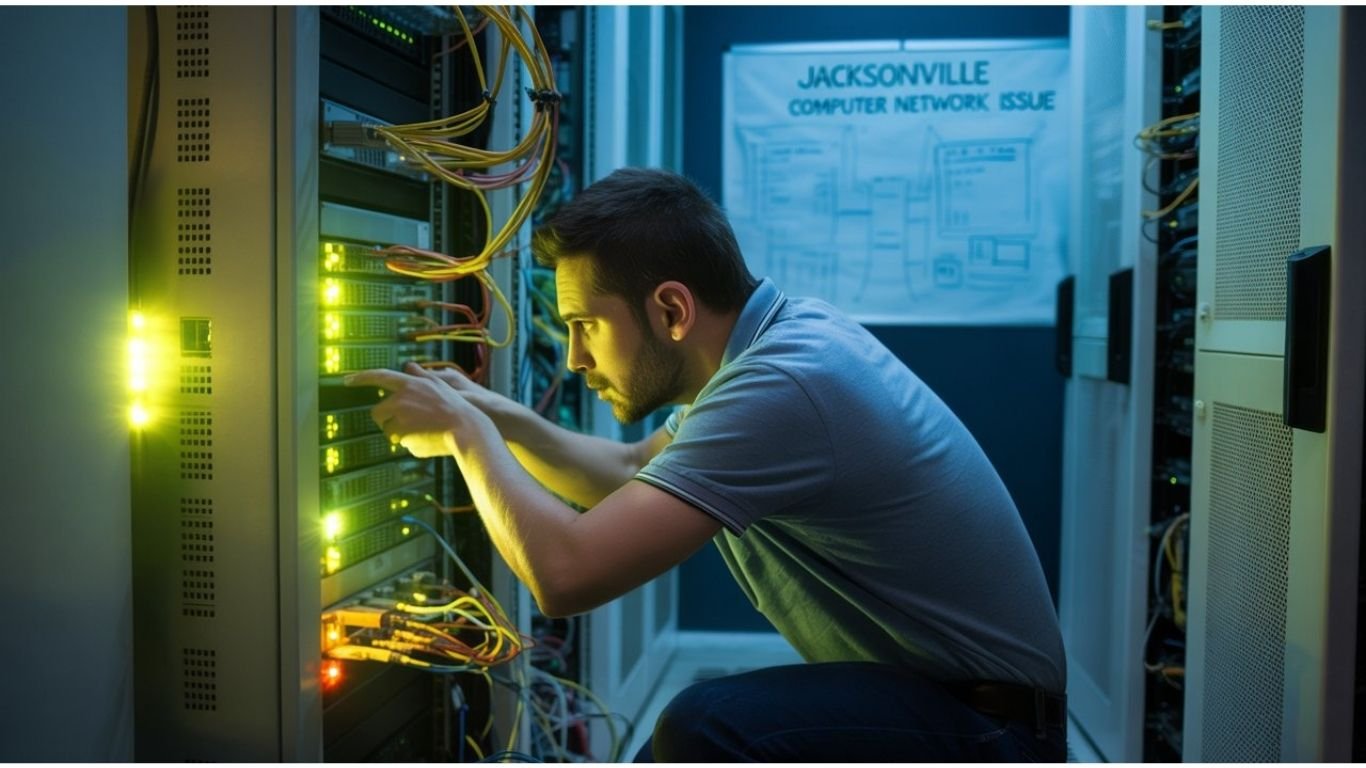Introduction to the Jacksonville computer network issue
In recent weeks, Jacksonville has found itself grappling with a significant computer network issue that has left many residents and businesses in the lurch. As technology weaves deeper into our daily lives, disruptions like this can feel overwhelming. Imagine trying to navigate your day-to-day tasks without reliable internet access or struggling to connect with clients due to sudden outages. This situation raises crucial questions about the resilience of our networks and the potential consequences for those affected.
Stay tuned as we dive into the timeline of events leading up to this disruption, explore its impact on local communities, and examine what might have caused such a widespread connectivity problem. Together, we’ll uncover essential insights about why robust computer networks are more important than ever in today’s digital landscape.
Timeline of events leading up to the issue
In early September 2023, reports began surfacing about connectivity problems in Jacksonville. Users experienced intermittent outages and slow internet speeds.
As days passed, frustration mounted among local businesses and residents alike. Many took to social media to voice their concerns, sharing stories of disrupted work and missed opportunities.
On September 15th, a major service provider acknowledged the issue publicly. They cited unexpected technical difficulties but didn’t provide specific details.
By late September, city officials became involved. Meetings were held with tech experts to investigate the root cause of the network disruptions.
Through October, affected areas expanded as more users reported issues daily. Local news outlets picked up the story, amplifying awareness throughout Jacksonville’s communities.
Impact on businesses and individuals in the area
The Jacksonville computer network issue has sent shockwaves through the local economy. Businesses, large and small, faced immediate disruptions. Operations slowed down or came to a complete halt for many.
For retail shops, point-of-sale systems became unreliable. Customers grew frustrated as transactions lagged or failed altogether. Losing sales during peak hours can be devastating.
Service-based industries felt the pinch too. Appointments were missed due to communication breakdowns. Clients turned to competitors who could provide seamless service.
Individuals also struggled with remote work challenges. Many found themselves isolated from essential resources and tools needed for productivity at home.
Community events that relied on online platforms fell into disarray as well. The ripple effect of this disruption touched every corner of Jacksonville life, highlighting just how interconnected we all are in our digital age.
Possible causes of the network issue
Several factors could have contributed to the Jacksonville computer network issue. One possibility is outdated infrastructure. Aging hardware and software can struggle under high demand, leading to disruptions.
Another potential cause may be cyberattacks. With increasing frequency, malicious actors target networks for various reasons, including data theft or extortion. This vulnerability heightens the risk for local businesses and individuals alike.
Environmental factors shouldn’t be overlooked either. Severe weather events can damage physical infrastructure, disrupting connectivity in critical areas.
Human error also plays a significant role in such incidents. Misconfigurations during routine maintenance or upgrades might inadvertently cause widespread outages.
Increased user traffic could overwhelm existing systems that aren’t properly scaled for current demands. As more people rely on digital services, the pressure on networks intensifies dramatically.
Efforts to resolve the issue
Local authorities quickly mobilized teams to tackle the Jacksonville computer network issue. Technicians worked round the clock, analyzing data and identifying damaged segments of the network.
Collaboration was key. Internet service providers joined forces with city officials to restore connectivity. Their combined expertise aimed at isolating problems while ensuring minimal disruption for residents and businesses.
Community engagement played a crucial role, too. Updates were shared through social media platforms and local news outlets, keeping everyone informed about progress and expected resolutions.
As restoration efforts continued, contingency plans emerged. Businesses were encouraged to explore backup systems or alternative networks during downtime. This proactive approach not only addressed immediate concerns but also prepared them for potential future disruptions.
The resolve shown by both government agencies and private companies underscored the importance of seamless communication in overcoming technological setbacks.
Preventative measures for future incidents
Preventative measures are key to avoiding future disruptions in the Jacksonville computer network. Organizations should invest in robust cybersecurity systems. Firewalls and antivirus software can help defend against potential threats.
Regular updates of software and hardware play a crucial role as well. Keeping everything current minimizes vulnerabilities that hackers could exploit.
Training employees is essential too. Educating staff on best practices for security can significantly reduce risks associated with human error.
Implementing regular backup protocols ensures data integrity, allowing businesses to recover quickly from any outages or attacks.
Conducting periodic assessments of network infrastructure helps identify weaknesses before they become critical issues. By being proactive rather than reactive, the chances of encountering severe network problems diminish greatly.
Conclusion: The importance of reliable and secure computer networks in today’s world
The Jacksonville computer network issue has underscored the critical need for reliable and secure digital infrastructures. As businesses and individuals increasingly rely on technology, even minor disruptions can lead to significant consequences. A stable computer network is not just a luxury; it’s an essential part of everyday operations.
With remote work, online transactions, and cloud-based services becoming the norm, any disruption can create chaos. It affects productivity, customer trust, and overall revenue. The recent events in Jacksonville serve as a reminder that organizations must prioritize cybersecurity measures and invest in robust systems to safeguard against potential threats.
Staying ahead means understanding vulnerabilities within networks while implementing best practices for security. This proactive approach will help mitigate risks and ensure smoother operations moving forward. In today’s interconnected world, securing our computer networks isn’t just beneficial; it’s imperative for success and stability in all sectors of society.

